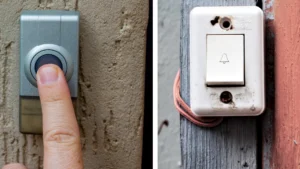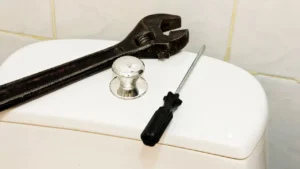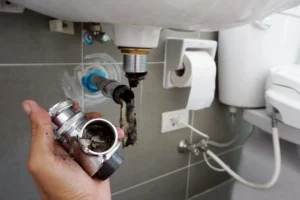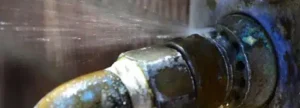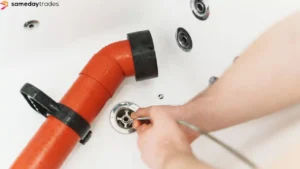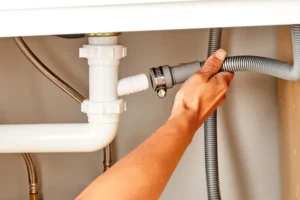Imagine you’re halfway through Sunday roast prep when the kitchen lights flicker, the oven quits, and the circuit breaker slams off with a thud. The dog bolts, the kids groan, and you can almost hear the ice cream melting. Power problems rarely wait for business hours, which is why spotting electrical red flags early keeps your family safe—and your dinner plans intact.
In this guide, we walk through seven clear warning signs that call for a licensed emergency electrician—whether you live in sunny Perth, leafy Adelaide, or humid Brisbane. We keep the jargon light, the advice practical, and the tone friendly (there may be one or two dad jokes, but they’re well-earthed).
Why Some Electrical Issues Cannot Wait
Routine jobs—adding a new outlet or swapping a light fitting—can sit on your weekend DIY list. Emergency faults, on the other hand, can’t. They carry a real risk of fire, electric shock, or expensive appliance damage.
Australia’s AS/NZS 3000 wiring rules set strict safety standards, and state regulators take a dim view of anyone ignoring them. In Western Australia, South Australia, and Queensland alike, fines apply for unlicensed work. So, if any of the signs below ring a bell (or buzz like a wasp in the wall), call a 24-hour electrician right away.
The Seven Warning Signs You Should Never Ignore
1. Repeated Circuit Breaker Trips
A breaker that trips once after you plug in a power-hungry air fryer is annoying. One that trips every other day is waving a red flag. Constant trips may mean overloaded circuits, ageing switchboards, or loose connections. Each reset buys time but also builds heat inside the panel. Action step: keep the breaker off and book urgent electrical fault finding.
2. Burning Smell or Discoloured Outlets
A warm, singed smell that clings to the air is nothing to sniff at. Scorched outlet covers signal melted insulation behind the wall—fuel for a potential fire. If you notice brown marks, switch off the main breaker and call an after-hours electrician. Resist the urge to spray air freshener; the problem is not the scent but the source.
3. Buzzing or Crackling Sounds in Walls
Electricity is supposed to be the strong, silent type. Buzzing noises often point to loose wires that arc as current jumps tiny gaps. That arcing produces heat and, sometimes, sparks. Think of it as popcorn that can burn the house down. Shut off power to the affected circuit and arrange an urgent electrical repair.
4. Visible Sparks When Plugging Appliances
A tiny blue zap when you slide a plug into a socket on a dry winter day is static. A loud spark, accompanied by a snap or scorch mark, is a different beast. Large sparks mean contacts are loose or the outlet is worn out. Leave the plug out, label the socket “do not use”, and ring a licensed master electrician fast.
5. Persistent Flickering Lights Throughout the House
One flickering bulb equals a bad lamp. Multiple flickering fixtures scream voltage fluctuation or a switchboard on its last legs. Besides the annoying disco vibe, uneven voltage can fry gadgets. No one wants a toastless toaster. Schedule an emergency electrical service to test supply levels and balance loads.
6. Electric Shocks from Switches or Appliances
That tingling sensation when you touch a metal toaster is not your new superpower. Shocks—mild or otherwise—suggest faulty earthing or moisture in wiring. Both conditions escalate quickly, especially in Brisbane’s humidity. Turn the appliance off at the wall and book a power outage repair before anyone gets hurt.
7. Sudden Partial or Total Power Loss
If the neighbours’ lights are on while your home is pitch black, chances are the fault sits on your side of the meter. Storm damage, ageing mains, or a failing service fuse can knock out supply. Before you reach for candles, check with your energy provider for outages. If none are reported, it’s time for an emergency electrician to diagnose and restore power.
Location-Specific Advice
Perth: Surges and Storm Season
Perth storms love to roll in without much warning, bringing wind-blown branches that slap overhead lines. Surges can also follow extreme heat when air-conditioners crank up statewide. Keep a surge protector on major appliances and store the number of a 24-hour electrician in Perth in your phone—right next to your footy scores.
Adelaide: Charming Homes, Tired Wiring
Many Adelaide suburbs feature beautiful stone cottages that predate smartphones… and safety switches. Cloth-insulated wiring and undersized fuse boxes struggle with today’s big-screen TVs and home offices. If your house was built before colour television, assume the cabling needs a check-up.
Brisbane: Humidity and Corrosion
Brisbane’s sticky climate speeds up metal corrosion inside switchboards. Water ingress after summer storms is another common culprit. Keep your switchboard cover shut tight. If you spot rust or moisture, phone an Electrician Brisbane before salty air chews through copper conductors.
What to Do While You Wait for Help
- Switch Off the Main Breaker. This cuts live current and reduces fire risk.
- Unplug Sensitive Electronics. TVs and computers dislike sudden voltage swings.
- Have an ABC-rated Fire Extinguisher Handy. Water and live circuits do not mix.
- Clear Access to the Switchboard. Move pot plants, kids’ bikes, and that mystery box you keep meaning to unpack.
Heads-up: don’t attempt makeshift fixes with duct tape or DIY hacks you found online. They make great viral videos but poor safety measures.
Extra Safety Tip: Test Your Safety Switches
Most Australian homes have residual current devices (RCDs) fitted, but many people forget to press the “test” button every three months. A working RCD trips instantly if it detects a dangerous leak of current, cutting power before a shock turns serious. Mark a reminder on your calendar—perhaps at the start of each new season. If the switch fails to trip during testing, treat that as Sign Number Eight and book professional help right away.
Choosing a Reliable 24-Hour Electrician
Not all sparkies are created equal. Here’s how to separate bright sparks from damp squibs:
- Licence & Insurance: Each state keeps an online register. Check it.
- Experience with Emergencies: Night call-outs need cool heads and stocked vans.
- Transparent Call-Out Fees: Ask for rates before they arrive, not while they’re holding the flashlight.
- Genuine Reviews: Five stars are nice; detailed feedback is better.
- Local Knowledge: An Electrician Adelaide who understands stone walls beats a fly-in-fly-out option.
For a deeper dive, see our guide “Tips for Finding the Best Electrical Services in Your Area”.
Conclusion
Electrical faults rarely fix themselves. If you spot any of the seven warning signs—sparks, buzzing walls, or outlets that smell like burnt toast—play it safe and call a licensed emergency electrician. Whether you’re in Perth, Adelaide, or Brisbane, fast action keeps small issues from turning into large repair bills (and keeps your Sunday roast on track).
FAQs
Is a buzzing power point dangerous?
Yes. It means loose contacts or overheating parts that may ignite.
What counts as an electrical emergency?
Anything risking fire, shock, or major outage—burning smells, shocks, smoke, or sparking outlets.
Can I reset a tripped breaker more than once?
Reset it once. If it trips again, leave it off and call a professional.
Why do my lights dim when I start the microwave?
You may have an overloaded circuit or voltage drop; an electrician can rebalance loads.
How fast can an emergency electrician get here?
Many arrive within the hour in metro Perth, Adelaide, and Brisbane.
Do I need a surge protector if I have safety switches?
Safety switches guard people; surge devices protect equipment. They do different jobs.
Will my insurance cover emergency repairs?
Policies vary. Document damage with photos and keep receipts.
Is it safe to use a generator during an outage?
Only with proper isolation switching. Back-feeding the grid endangers lineworkers.
What does “switchboard sparking” mean?
It indicates loose lugs or corroded bus bars. Shut power off immediately.
Can humidity really cause wiring faults?
Yes—moist air promotes corrosion and lowers insulation resistance.


